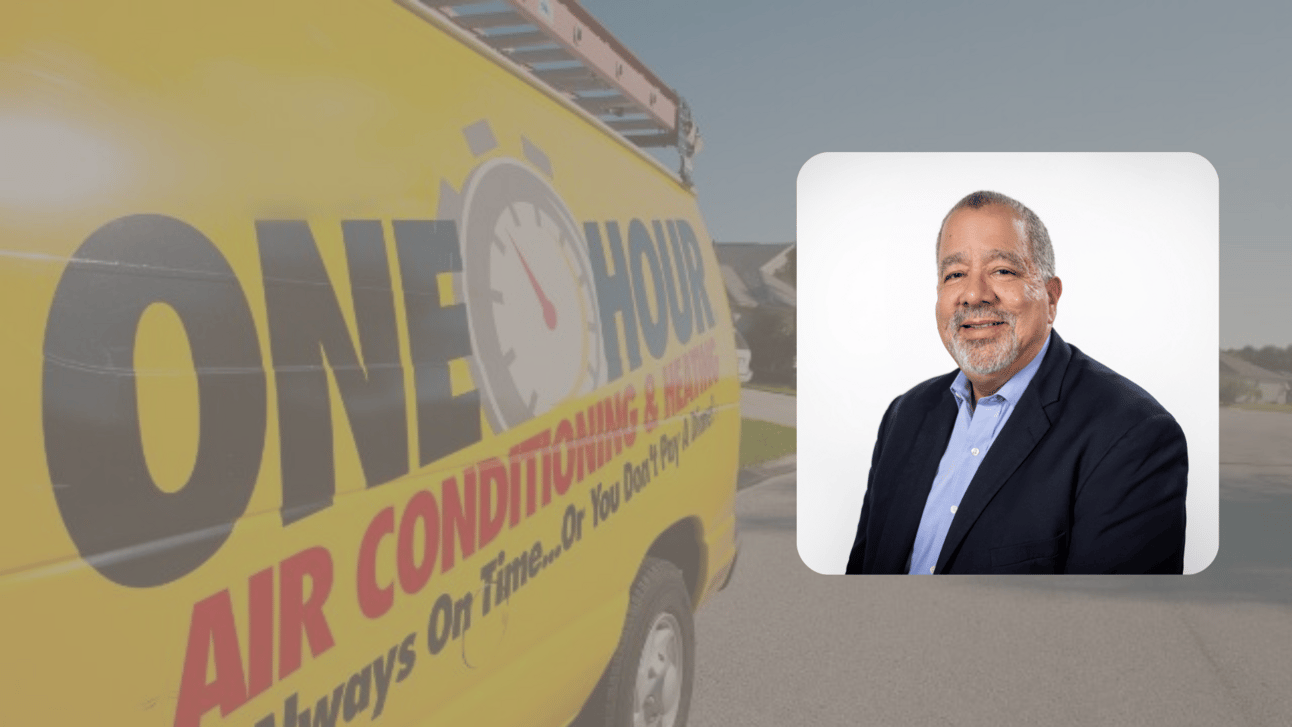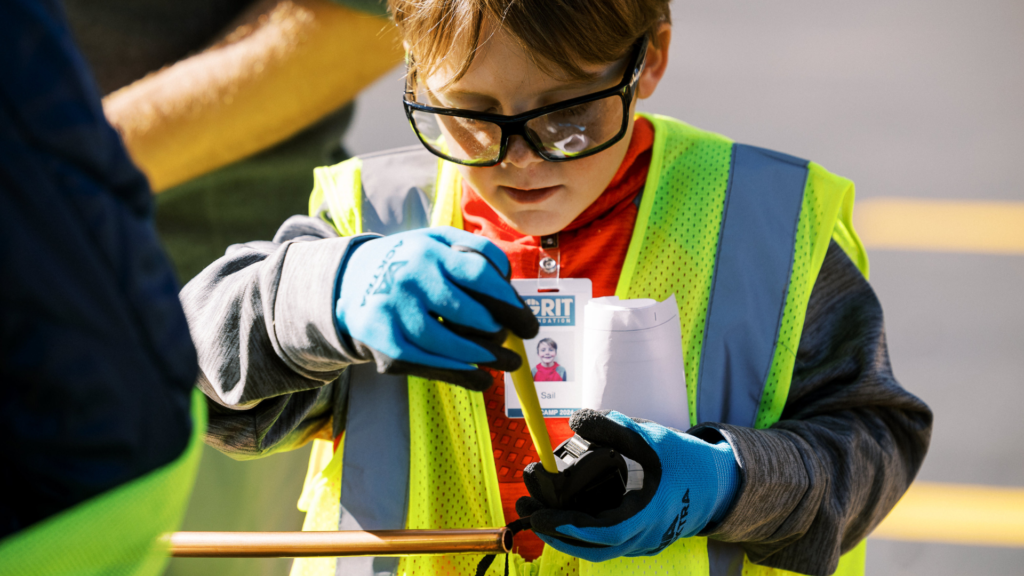David Montanez on One Hour Heating & Air Conditioning’s strategy and expanding nationwide
Notes on 2023, blocking and tackling, and the challenges ahead

❝
The HVAC industry is a large opportunity. Whether your number is $100 or $200 billion, it’s a lot. Our business today in terms of total sales is just scratching the surface.
David Montanez is the Vice President of Franchise Development at Authority Brands, the parent company of One Hour Heating & Air Conditioning.
We talked about how 2023 went, tactics for growing One Hour franchises, what’s ahead for the industry, and more. Our conversation’s been lightly edited for brevity and clarity.
How did last year go for One Hour, business-wise?
2023 was a great year. We’re at 392 franchisees, system-wide; we’ve got 424 territories; and we own 33 branch locations. We’ve had record years recently and 2023 was no different. What we’re continuously trying to obtain is footprint, nationwide, and market penetration, deep.
We signed over 20 deals in 2023 and grew across the country — from California to Texas to Florida. Overall, you’re going to see that growth continue — we’ll probably add 15 or 16 brand-new operations this year.
When you expand, do you acquire and re-brand existing contractors, or launch from scratch?
We actually do both. Some contractors are trying their best and it’s a challenge — they have the technical ability, but the business side eludes them. We call them conversions. We give them the opportunity to come on board with no money down, we’ll push franchise fees out, we’ll pay to wrap their trucks, and they’re required to come to a 5-day training in Phoenix. And then we get them an existing franchisor to partner up [with] and have someone who helps them progress.
In other situations, we’ll launch with guys [from scratch]. You have to go find a location and we put together a budget. You have to have a map so that you have a plan of attack for what the business looks like, and that works extremely well for brand-new startups.
How do you think about One Hour’s growth, overall?
The HVAC industry is a large opportunity. Whether your number is $100 or $200 billion, it’s a lot. Our business today in terms of total sales is just scratching the surface. We have the opportunity for growth — how do we expand our presence and how do we expand the overall penetration?
Number two is unit economics. Now, let’s talk about what really drives the business: the blocking and tackling that millions of folks don’t do every day. The biggest mistake, from people we’ve talked to, is they don’t answer the phone, and customers move.
At the individual franchise level, what are one or two specific tactics you implement to help them grow?
We started a “recruit military” program nationwide. We’ve worked with the military services to hire those folks who are exiting the system, and it’s been a phenomenal success for us. Through Indeed, we’ve received over 5,000 resumes nationwide, and that’s across all of the trade brands including Benjamin Franklin Plumbing, DRYMedic, Mister Sparky, One Hour Heating & Air, and Screenmobile. We’re going to do it again in 2024.
The second thing we call “back to basics”. Know your numbers is a theme we go through all the time. We know what we can negotiate — we have a group that goes out and negotiates what I call “stuff” for all 16 franchisors in Authority Brands’ portfolio to make sure we’re getting very competitive pricing for our franchisees. And we continue to do training. All kinds of training goes on, including the ability for them to train using virtual goggles.
❝
Employee retention is critical for the long-term plan of your business. You have to retain them, and it’s not just dollars and cents.
Earlier, you mentioned unit economics. Anything else you can speak to on that?
We focus not only on the top line, but we want you to put more money in your pocket. One of the first things we do — if you come in as a conversion — is review your purchases over the last year, and we run through those with our purchasing partner and say, “Buying this same material would have cost you X if you were part of our group.”
Then the last part is marketing. You’ll get to marketing [spend being] 8% [of your revenue] on a regular basis — some of the better ones do 12%. We work with you on that plan so you can get to those numbers. Once you get that top line moving and get the cost savings, your bottom line’s going to get better.
What are the big industry themes that contractors should be thinking about for the future?
If you’re an HVAC contractor trying to plan for the next five years, there are three issues in particular:
-
The customer’s expectations have forever changed. Being there Tuesday used to be great, but now if you’re not there by 2 o'clock, they’re calling somebody else. You’re in the people-moving business.
-
Customers today are very savvy. They can get a price on their phones for the same Trane AC unit that you’re going to install. The ability to have information about what you’re doing to keep them informed is going to be critical.
-
Employee retention is critical for the long-term plan of your business. You have to retain them, and it’s not just dollars and cents. You have to pay a competitive salary, but if you can’t keep them, you won’t be in business long. And I’ll say it over and over again, training is a method of retention. People want to know that you’re investing in them, and it's not just dollars, it’s new skills, responsibilities, and a path for them to grow.
What are the challenges with all of that?
I jokingly say that I don’t know how to count to four, so again, I’m going to say three:
-
Regulation is always a risk — changes in what you can and can’t use that are difficult nationally and locally. Keeping an eye on what’s coming down the pipe from a regulatory perspective is always going to be a challenge.
-
The economy. While people like to say we’re recession-resistant, there’s always that risk. We jokingly say we refuse to participate in a recession, but you have to be able to offer different choices to customers.
-
Five years from now, you’re going to see an increased number of electric vehicles on the road for your business. That’s going to cost you more and you need to account for that in your budget. That’s coming, and that’s a whole different way of working — how do you ensure they can carry equipment? What does that look like?
Has consolidation had an impact on you guys?
We look at folks coming in under private equity as a good thing. What makes PE attractive to franchisors is their consistency in trying to build growth. We don’t have to have a conversation about market penetration, [because] they come to us with, “How do we penetrate the market and grow faster?”
You’ll see some more consolidation because they’ll secure fifteen franchises and you don’t need fifteen HR people. Additionally, you’ll see, I think, an expansion into the other trades — plumbing, electrical, and so on — because it’s a model that fits and those businesses complement each other well.
Anything else on your mind?
Two things. One is that we’re in a great industry with great opportunities. There’s a lot of opportunity to improve as an industry. We want it to be a strong, viable industry for our children in the future.
Number two is the customer is always right. We’ve got to keep them satisfied and meet (and exceed) their expectations. When you recruit people, remind them that the customer is king. Train them and invest in them; it’s a great industry to be in.
📬 Get our stories in your inbox
Keep reading
GRIT Foundation aims to tackle skilled trades gap
The foundation's flagship initiative enables contractors to host hands-on day camps to introduce students to the trades
Congress urged to make contractor-friendly tax break permanent
A bill has been re-introduced to make permanent a small business-friendly tax break that's set to expire this year
How’s the U.S. consumer doing?
Deloitte published its "State of the US consumer" report for July


